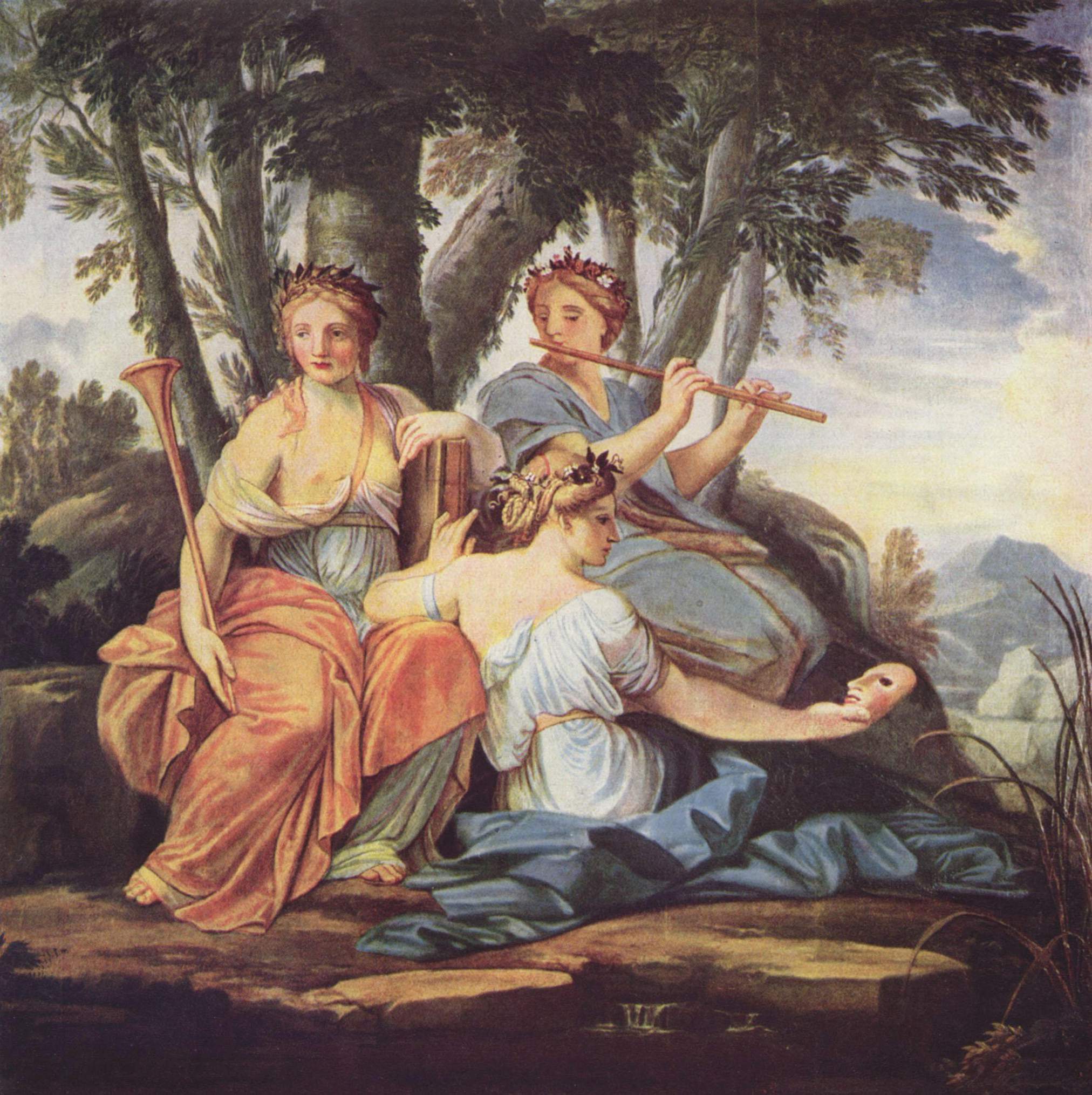Music has had an ancient and beautifully rich history. Old as humanity itself, music too experienced cultural deviation along with mankind, with each part of the world producing something really unique. Many ancient civilizations placed great importance on music, and Greece was no exception. Already a colorful and exotic people, music played an important and integral role in Greek society. Our point of focus in this post will be this. Music in Ancient Greece, its types and evolution, and the role it played in Greek society.
Greek Music And Greek Myth
Even the modern word, ‘music’, is derived from Greece. The word itself comes from the Muses, the daughters of the god Zeus in Greek lore. The Muses were patron goddesses of intellectuality and creativity. This is in accordance with the fact that music was deeply integrated into Greek art of all forms. Music, in ancient Greece, was not only the melodious tones used to serenade the masses, but also encompassed singing and dancing. Every facet of Greek life was enhanced with music, be it a marriage or a funeral, theatre or religious ceremonies.
The Greek people considered music to be a gift from their many gods. Greek myths and their records about music are often interchangeable and leave historians wondering what is solid fact and what is merely religious myth. The Greek people even credited the gods for the inventions of several music instruments. According to the Greeks, the god Hermes attached horns and gut-string to a tortoise shell to create the first lyre. A water nymph by the name of Syrinx was trying to escape Pan and when faced with an uncrossable river, prayed to her nymph sisters to transform her. Her nymph sisters made her into a bundle of reeds which Pan found and fashioned into an instrument known as the syrinx or pan pipe. There are many more legends like these about Greek gods and music or musical instruments.
Significance Of Music In Ancient Greece
As we mentioned above, music played an immensely important role in Greek culture and society. Ancient Greece was an advanced civilization for its time, and used music to full effect in every facet of society. The Greeks loved ballads and excelled in poetry alongside art and technology. Music was a must at all kinds of gatherings, be they as joyous as weddings and festivals or as somber as a funeral. Religious events and even drinking parties almost always had music present there to enchant the attendees.
Recognizing music’s potential to not only fill the silence but to also get people in the right mood, it was used extensively and to great success in important ancient Greek sporting events like the Pythian Games and the Olympic Games. Harkening back to what we said above, music was so intensely intertwined with Greek myth and religion that it was also used for religious sacrifices and before or after drinking parties during religious libations. Furthermore, music was also used to excite Greek prophets into prophesying, and expressions for ‘prophesying’ and ‘making music’ were the same.
Music Instruments Of Ancient Greece
The Greeks used a variety of different types of instruments, but most of them were either string-based instruments, wind-based instruments, or percussion-based instruments. Popular string instruments included the lyre, the barbiton, and the kithara. The aulos, pan pipes, and the hydraulic organ were some of the popular wind-based musical instruments. For percussion-based instruments the Greeks were fond of the tympanum, the crotalum, and the koudounia.
The lyre was a hand-held instrument with around seven or more strings that were strummed or plucked. The barbiton was a taller version of the lyre and quite simple to use. The kithara was also somewhat like a lyre though much more complicated in its use. Kitharas were held upright when played and the musician used a plectrum for it. Kitharas had a box-like frame with strings that could be tuned using wooden wedges, much like today’s modern guitar.
Aulos usually consisted of two double-reed pipes. The pipes were placed together but individually in the musician’s mouth and played a sound much like a clarinet. Pan pipes, or syrinx, consisted of several pipes increasing in length one after the other. The hydraulic organ, or the water organ, inspired today’s modern organ. This instrument made use of water to keep providing constant pressure to the pipes for a constant note to played, similar to organs of today.
The tympanum was quite like a drum in that it was shallow, circular, and beaten with the hands or sticks. A crotalum was like a castanet, and the koudounia were like bells of copper.
Greek Music’s Influence On Western Music
Apart from the word ‘music’ literally being derived from Greek myth, ancient Greek music had some valuable influences on today’s Western music and modern music in general. Ancient Greek music theory, knowledge about their musical systems and musical ethos, particularly from the teachings of the Pythagoreans, Aristoxenus, and Plato among others influenced the ancient Romans, the early Christian Church, and the music composers of medieval times. Apart from that, some of the musical instruments the Ancient Greeks invented most likely ended up influencing and helping along the creation of modern instruments, like the kitharas for guitars and the hydraulic organ.
Conclusion
And that wraps up our small guide to the fascinating history of ancient Greek music. There is not denying the Greeks were an advanced and progressive nation, and the importance of their contributions to art and music can not be denied. Interested to read about something else from another great ancient civilization? Read here about Roman marching camps. Want to instead learn about some historical mishaps? We have a piece on the biggest blunders in architecture and design history here.

